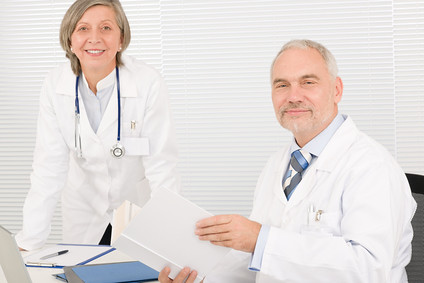Tomi Ahonen's said "In the connected age, sharing information is power." He compares information sharing to the previous power move of information retaining, divvying out at the right time and place.
Doctors are powerful people, and their source has so far been the later- information withholding. Patients must come to them, at their schedule and on their timetable. This is not to say they're power mongers; most physicians would prefer to be all things for their patients if there were enough hours in the day, and oftentimes work all of them.
Much of medicine, and all of medical education is predicated on this withholding/dispensing model. Yet, as we edge deeper into Ahonen's connected age, patients will come to expect their health information to be shared, as easily accessible as their bank accounts and music purchases, always on and always updated to recent events and behavior, and they will expect (or demand) this before doctors are ready to provide it.
Medical schools have a unique role. Unlike other developments in the profession, for example like the emergence of new diagnostics where students are playing catch-up to implementations already achieved in the field, these connected tools are foreign to the traditional structure of care delivery. Not only foreign, they're disruptive. Disruptions from information sharing tools like the Skin of Mine app (which I've written about here) will not be welcomed by clinicians who have structured their practice around dispensing information. This sets up a recipe for a very rough transition. Since medical schools are full of tech-savvy, idealistic students who are already structurally ensconced in an environment that combines learning, innovation, and the wisdom of senior faculty, this offers an ideal site to gracefully expose those established in the medical structure to these disruptive tools.
So, basically, medical schools can lead the way through these changes rather than play catch up. Someone has to pioneer these developments, it might as well be the digital natives who are already enrolled in safe medical testing ground.
So, basically, medical schools can lead the way through these changes rather than play catch up. Someone has to pioneer these developments, it might as well be the digital natives who are already enrolled in safe medical testing ground.

No comments:
Post a Comment